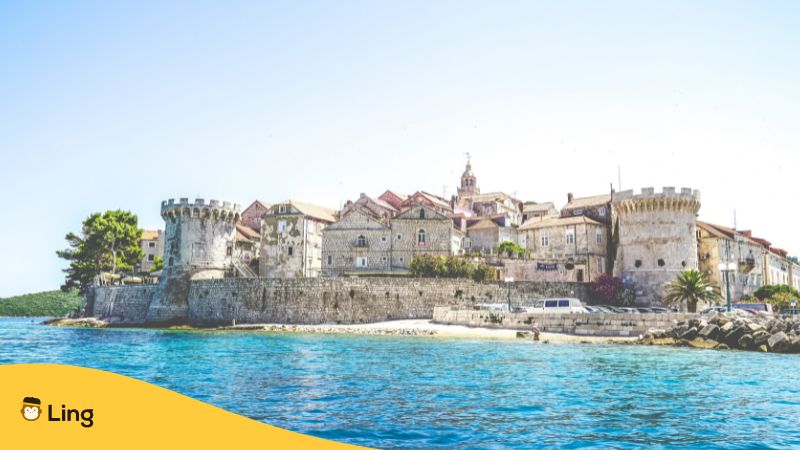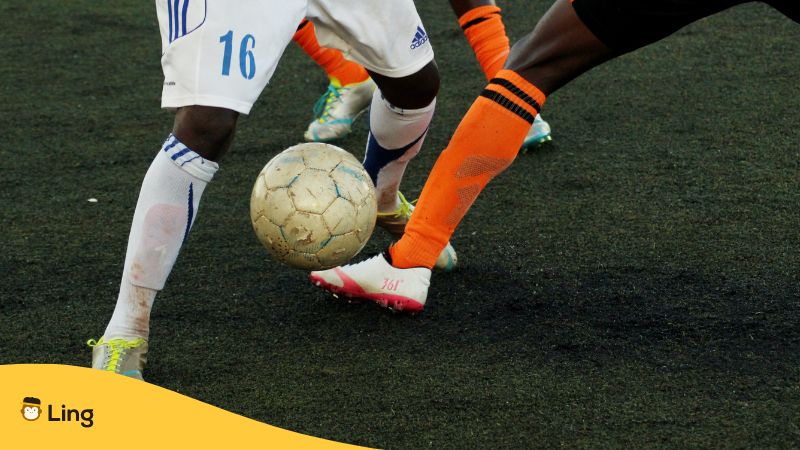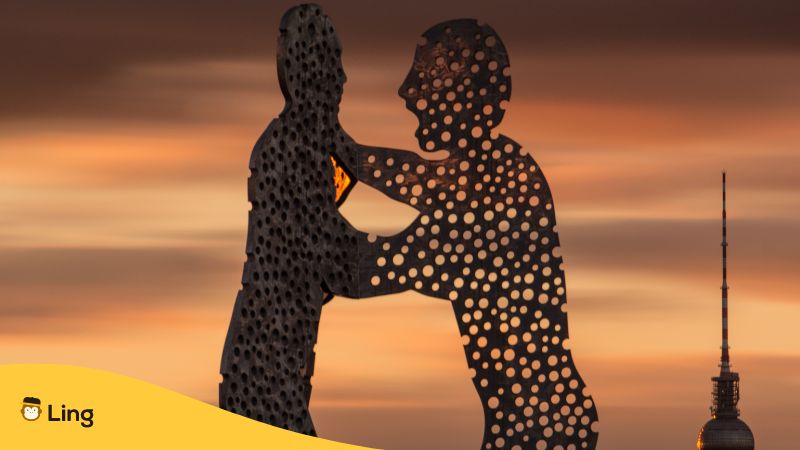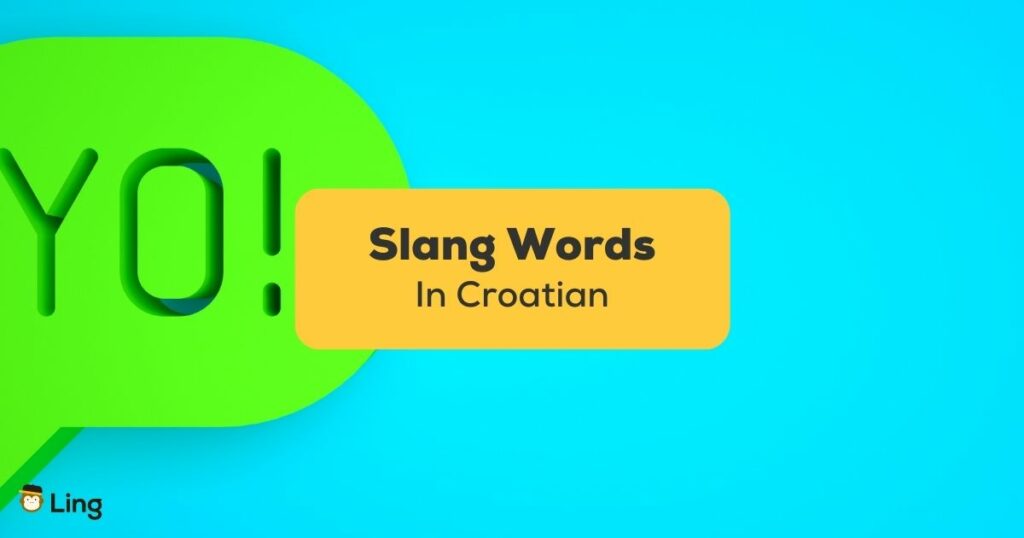Slang, though not often seen in language-learning textbooks, is an integral part of learning a new language. Slang is used every day by the local people, and it is especially encouraged on the Croatian coast. It’s a way to communicate in a more informal, relaxed manner with your friends, family, or people you meet while traveling! So you better know some basic Croatian slang words & phrases if you plan to visit anytime soon.
Not only will you get a chuckle of appreciation, but you will also feel more connected to the community and how they choose to speak to each other.
But be careful! In Croatia, it can be considered disrespectful to use slang in the wrong context or with the wrong person of authority. Keep reading to know when and where to use Croatian slang, and how to use it in everyday dialogue!

History Of Croatian Slang
Slang has been present in Croatian language for a long time. It started to develop in the 20th century, especially during the period of Yugoslavism, when Croatian was heavily influenced by other Slavic languages.
During this time, many new words, sounds and pronunciation entered Croatian, including slang terms. In the post-Yugoslav era, Croatian slang has continued to evolve on its own, reflecting the unique cultural and social experiences of the Croatian people.
Croatian slang has its roots in the country’s rich history and culture. Over the course of time, Croatian slang has become an integral part of the language, adding color, humor, and character to everyday life and conversations. Slang is especially present today in this crazy technological world that we live in!
Where Is Croatian Slang Used In Modern Day?

Croatian phrases are widely used in modern-day Croatia, especially among young people. It’s a way to express emotions, share experiences, and create a sense of belonging. It can use swear words or not. Slang terms are often created spontaneously in response to a pop culture moment, for example, and they can quickly become a part of everyday conversations. Here are five ways that Croatian slang is used in modern-day Croatia:
- Social media: Croatian slang is frequently used on social media platforms such as TikTok, Twitter, and Instagram. People often use slang terms when communicating with their friends, and it’s not uncommon to see slang terms and expressions in posts and comments.
- Music and entertainment: Croatian music and entertainment industries are full of slang terms and expressions. Many songs and movies use slang terms to create a more authentic and relatable experience for their audiences. As a result, many slang terms become popularized and used by people across the country.
Want to learn slang in popular Croatian music? Check out this guide to Croatian songs to best learn the language.
- Casual conversations: Croatian slang is often used in casual conversations between friends and family. It’s a way to create a relaxed and friendly atmosphere, and it helps people feel more connected to each other. Slang terms are often used to express emotions, share experiences, and make jokes.

- Sports: Croatian slang is also used in sports, especially in soccer. Players and fans often use slang terms to cheer on their favorite team, express their emotions, and create a sense of camaraderie. Some of these slang terms have become iconic, and they are now part of the soccer culture in Croatia.
- Online gaming: Croatian slang is also used in online gaming communities. Gamers often use slang terms to communicate with each other, make jokes, and express their excitement or frustration. Slang terms are often used to create a sense of community among gamers and to make the gaming experience more enjoyable.
As you can see, all facets of people use Croatian slang in everyday life. It’s used in social media, music and entertainment, casual conversations, sports, and online gaming. Learning Croatian slang will help you understand and connect with the culture and people of Croatia. So, let’s finally learn some Croatian slang together!

Popular Croatian Slang Words & Phrases
Croatian slang is rich and diverse, and it can be challenging for beginners to keep up to date with all the new expressions. Here are 10 popular Croatian slang words and expressions that native speakers use:
- Fakat – meaning “really” or “for real”
- Frajer – meaning “dude” or “hunk”
- Šatrovački – meaning “slang” or “street language”
- Brate – meaning “brother” or “dude”
- Jebiga – meaning “f*ck it” or “oh well”
- Brijem – meaning “I think” or “I believe” to express opinion
- Šugati – meaning a “suck-up” or “brown-noser”
- Šmeker – meaning “player” or “confident dude”
- Ajme – meaning “oh my god” or “ouch!”
- Debela – meaning “girlfriend” or “partner” (*though this directly translates to ‘fat,’ it’s actually supposed to be an endearing term to describe your partner)

More Detailed Examples Of Croatian Slang
Now, let’s move on to 3 more detailed examples of Croatian slang.
- Fakat – This is a slang term used to mean “really” or “truly”. So, if someone says, “Fakat mi se sviđa tvoja nova frizura” (I really like your new hairstyle), it means they’re being sincere.
- Opet si na grbači – This phrase is used to say “you’re on my back again” or “you’re nagging me again”. For example, if your mom asks you to clean your room for the hundredth time, you could say, “Ma opet si na grbači” (You’re on my back again).
- U tri pizde materine – This one’s a bit vulgar, but it’s a common phrase used to express frustration or anger. It literally means “in the three motherf***ers” and is similar to saying “in the middle of nowhere”.
How To Use Croatian Slang In Conversation

Using slang in Croatian conversations can make you sound more natural and relaxed. But, you need to be careful when using it, as it’s not always appropriate in certain situations. You should use slang with your friends, family, or colleagues you’re comfortable with, but avoid using it in formal or professional settings. Here are some examples of how to use Croatian slang in everyday conversations:
Example 1:
Friend 1: “Kako si, brate?” (How are you, dude?)
Friend 2: “Ma, fakat dobro!” (I’m really good!)
Example 2:
Friend 1: “Ovaj klub je fakat lud!” (This club is really crazy!)
Friend 2: “Da, ali previše ljudi, jebiga.” (Yes, but there are too many people, oh well.)
Example 3:
Friend 1: “Vidjela si novog frajera?” (Did you see the new cool guy?)
Friend 2: “Da, šatrovački izgleda dobro.” (Yes, he looks good.)

Here’s an example of a longer dialogue using Croatian slang.
- Ana: Fakat je bilo super sinoć na partiju.
- English: The house party was really great last night.
- Ivan: Baš si se zapalila za onog tipa, ha?
- English: You really liked that guy, huh?
- Ana: Opet si na grbači.
- English: Stop nagging me.
- Ivan: Ma dobro, dobro, ne moraš se odmah ljutiti.
- English: Okay, okay, you don’t have to get mad right away.
- Ana: “Ma ne ljutim se, samo sam umorna.”
- English: I’m not mad. I’m just tired.
In Conclusion
I hope you were able to go through that dialogue and understand how to sprinkle slang into conversations! Although it can be tricky for beginners, slang is an essential part of everyday conversations in Croatia. Learning Croatian slang will help you sound more natural and relatable, especially when talking to locals.
If you want to learn more slang, try looking at the lyrics of some popular Croatian music! That’s a good place to see what’s happening in the modern-day slang world! Just remember to use it appropriately, and you’ll be on your way to mastering Croatian slang. So, go ahead, try it out, and don’t be afraid to make mistakes!
Learn The Croatian Language With Ling
Want to learn more Croatian? Download the Ling app today from the App Store and Play Store for Croatian language lessons. It is a highly researched language-learning app for a fun and personalized experience.
With Ling, you’ll smash your Croatian language goals with a little hard work and practice. Aside from Croatian, there are over 60+ foreign languages to learn on Ling. Do more with the Ling app now!






















